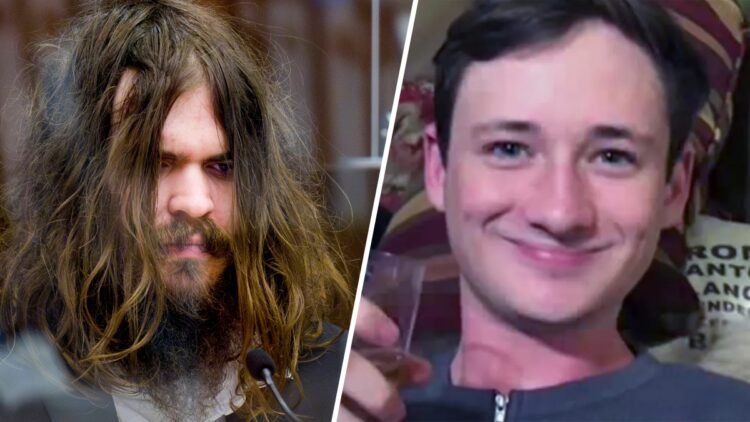A California man convicted of murdering a gay University of Pennsylvania student in a hate-fueled attack is set to be sentenced to life in prison on Friday.
Samuel Woodward, now 27, will appear in a Southern California courtroom for the sentencing tied to the 2018 killing of Blaze Bernstein. The sentence is predetermined, as the jury’s verdict of first-degree murder with a hate crime enhancement mandates life imprisonment without parole, according to Kimberly Edds, a spokesperson for the Orange County District Attorney’s Office.
Defense attorney Ken Morrison has stated plans to appeal the conviction.
Woodward was found guilty earlier this year of stabbing Bernstein, a 19-year-old gay and Jewish college sophomore, in a crime that prosecutors argued was motivated by deep-seated hatred.
The Murder of Blaze Bernstein
Bernstein disappeared in January 2018 after meeting Woodward at a park in Lake Forest, about 45 miles southeast of Los Angeles. When Bernstein missed a dentist appointment the following day, his parents discovered his belongings—including his glasses, wallet, and credit cards—intact in his room but were unable to reach him.
A large-scale search ensued, with Bernstein’s family combing through his social media accounts. Investigators learned through Snapchat messages that Woodward was the last person to see Bernstein. Woodward initially claimed that Bernstein had gone to meet another friend at the park that night but never returned.
Days later, Bernstein’s body was found in a shallow grave within the park. He had been stabbed multiple times in the face and neck.
Trial Highlights
During the trial, the focus was not on whether Woodward killed Bernstein, but on his motives and the circumstances of the attack. Prosecutors presented evidence linking Woodward to the violent neo-Nazi hate group Atomwaffen Division and argued that the murder was premeditated and rooted in anti-gay and antisemitic ideologies.
In contrast, defense attorney Morrison argued that Woodward struggled with his sexuality, citing a strict upbringing in a politically conservative, Catholic family where homosexuality was openly condemned. Morrison also pointed to Woodward’s challenges with a long-undiagnosed autism spectrum disorder as contributing factors in the crime.
Connections and Evidence
Woodward and Bernstein had attended the same high school, Orange County School of the Arts, and reconnected through a dating app in the months leading up to the killing. According to Woodward’s testimony, he picked Bernstein up, drove to the park, and attacked him after fearing Bernstein had taken a compromising photo of him.
Prosecutors dismissed this narrative, pointing to evidence of Woodward targeting gay men online, abruptly cutting off contact after luring them into conversations, and documenting his actions in a profanity-filled journal.
A search of Woodward’s family home in Newport Beach revealed a trove of incriminating materials, including a black Atomwaffen mask with traces of blood, a folding knife with a bloody blade, and other anti-gay and antisemitic paraphernalia.
Public Outcry and Delays
The case, delayed by years of procedural setbacks, drew significant public attention in Southern California. In 2018, residents mobilized to assist in the search for Bernstein after his sudden disappearance, reflecting widespread concern and outrage.
Woodward, who testified during his trial, appeared detached, offering slow, halting responses to lawyers’ questions while his long hair obscured parts of his face.
Sentencing and Aftermath
The verdict has brought a sense of justice for Bernstein’s family, though the case highlights the enduring dangers of hate crimes. As Woodward faces life imprisonment without parole, the trial has sparked broader conversations about hate groups, online targeting, and the systemic violence faced by LGBTQ+ individuals.

 English
English



























































